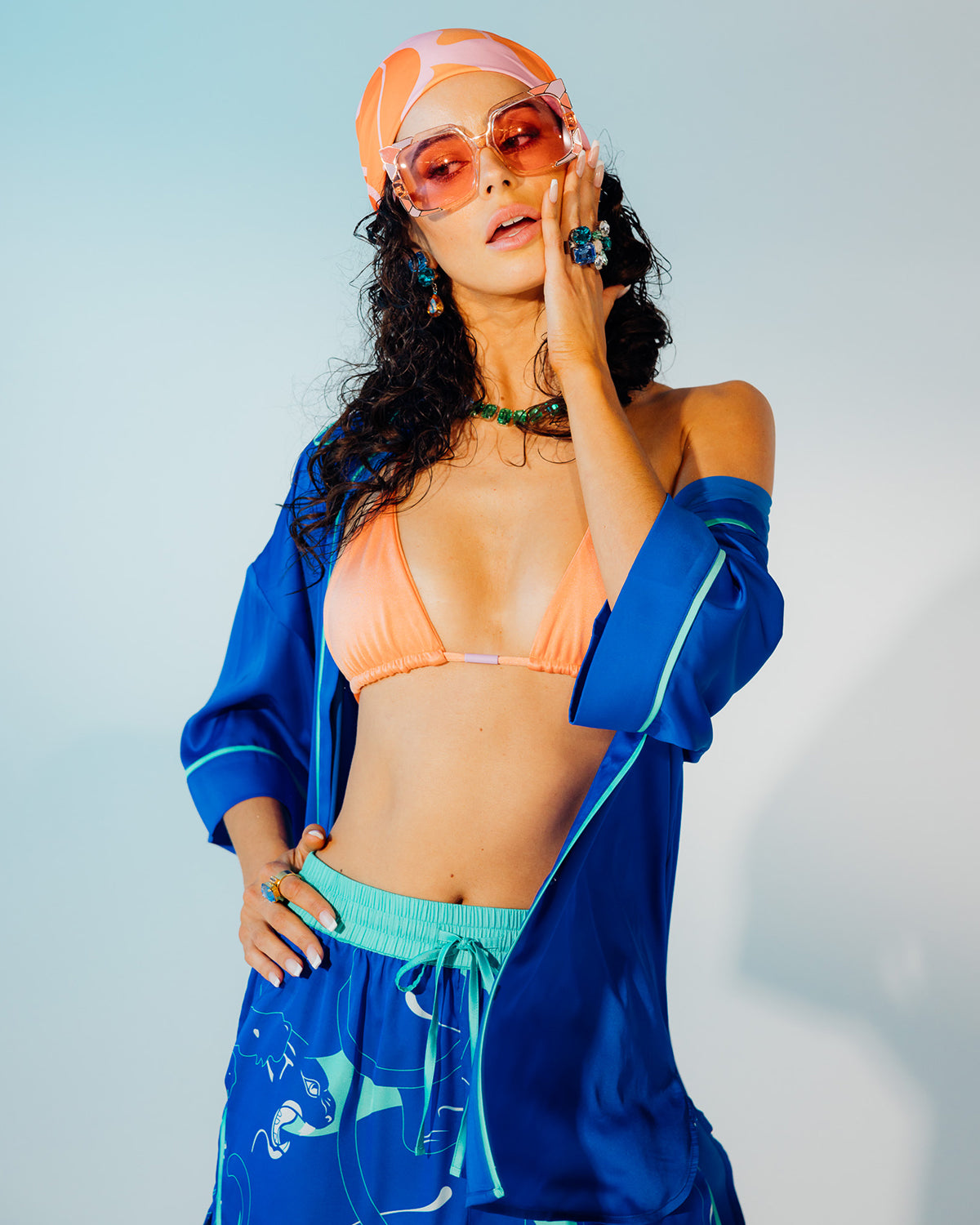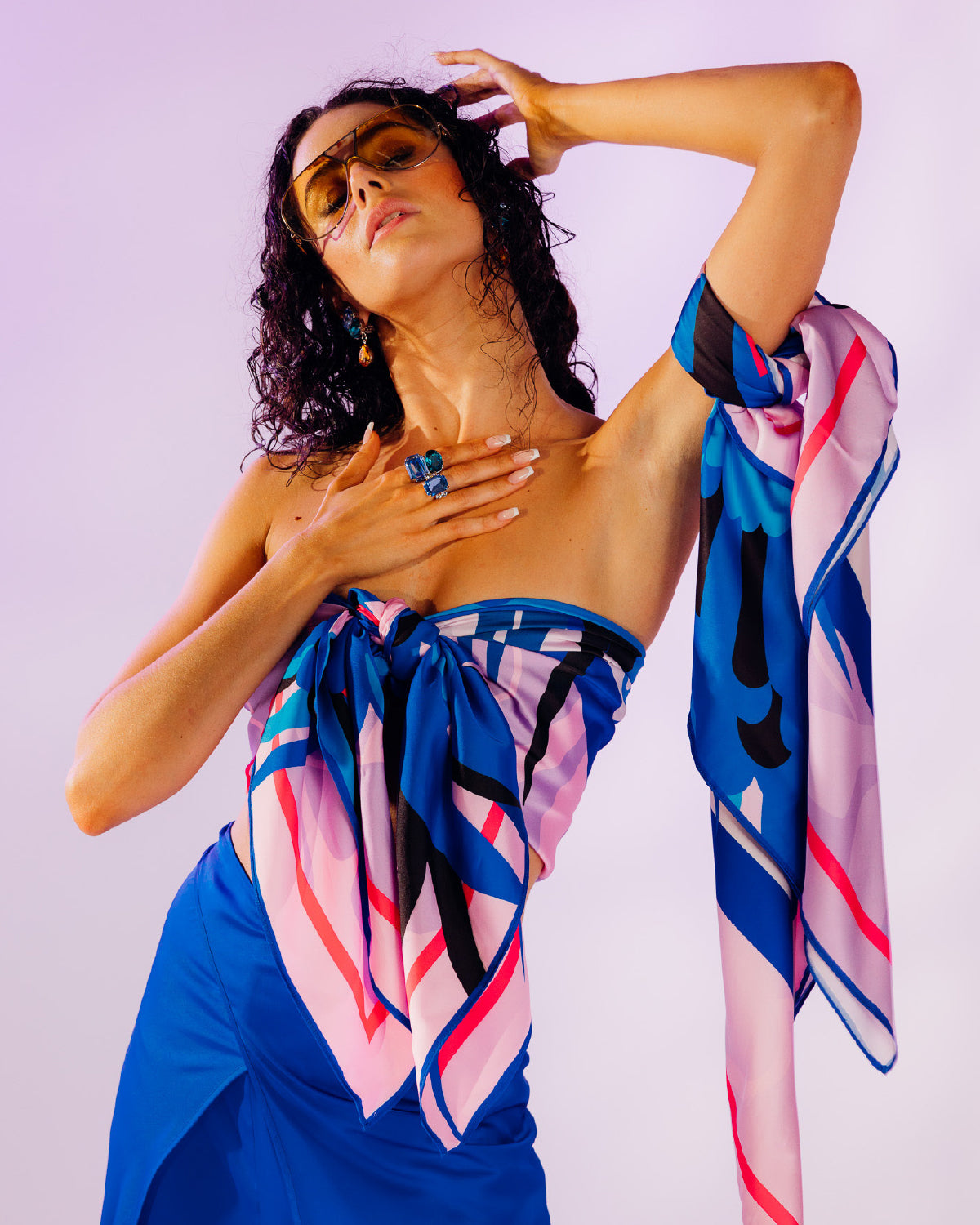Sustainability
The care I pour into Harlan is the same care I hope to instil in its wearers. Whether it’s crafting bikinis from post-consumer waste or packing orders in recycled tissue paper, I’ve made a conscious effort to embed sustainability into my brand. This means only working with factories that adhere to strict, ethical working conditions and putting an emphasis on quality that ensures our designs can be cherished for years to come (rather than buried beneath landfill after a few wears!). Although being a one-person show comes with its limitations, it also means I get creative with very small quantities of fabric and ensure every last scrap is turned into something beautiful.
Resort Wear
With vibrant colour and bold prints championing the Harlan aesthetic, it’s vital that our dyes are as free from chemicals as they are vivid. Every garment is crafted from 100% Oeko-Tex certified materials, ensuring the safety of its wearer as well as the people that make it. The factory in China where Harlan resort wear comes to life is a BSCI certified business, meaning it meets 11 crucial codes of conduct, some of which include fair wages, safe work conditions and regulated waste management. It’s so important to me (as it should be to everyone) that the people behind our clothing have a safe, comfortable place to work and I've been to visit several times to ensure these needs are being met. We currently use GRS certified recycled polyester and BCI certified organic cotton but I’m always on the lookout for materials that will further improve the sustainability of my products.
Swimwear
Harlan swimwear is ethically-made in Bali where our manufacturer pays well above minimum wage and provides workers with free health insurance for them and their families. Funnily enough, wearing your Harlan bikini to the beach won’t be its first time in the sea. Every swimsuit is crafted from Carvico Vita, a soft, Italian-made fabric with the perfect amount of stretch. The ECONYL® Regenerated Nylon yarn (which makes up 78% of the material) is spun from ocean waste and plastic pollution that can be harmful to marine life (so likely better off in a bikini!). Unlike traditional nylon, ECONYL® can be recycled again and again, however, when combined with other fibres, that process becomes far more difficult. In order to give swimwear the stretch it needs to be comfortable, elastic must be woven in, and in turn the garment isn’t able to decompose. I’m always researching new materials to increase the circularity of our swimwear and will be fully transparent where there’s room for improvement. I’ve ensured all textiles used by our suppliers are 100% Oeko-Tex certified with dyes that are completely free from harmful chemicals.



